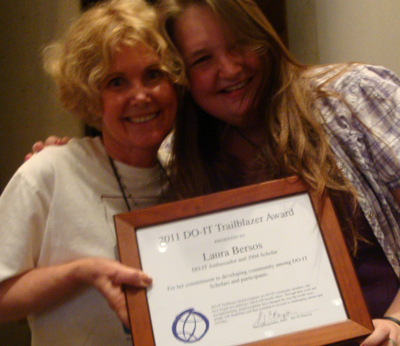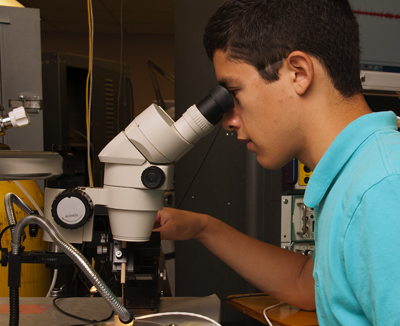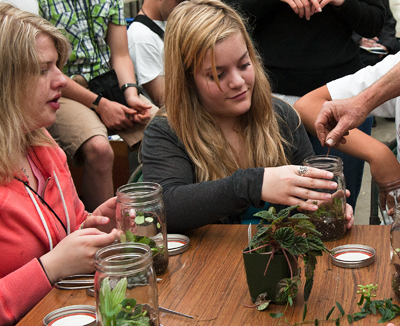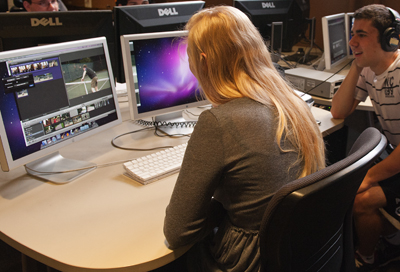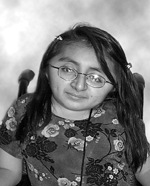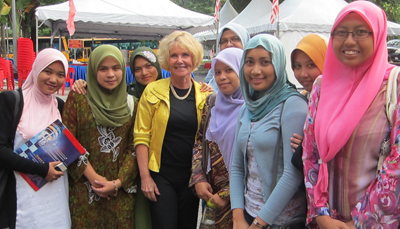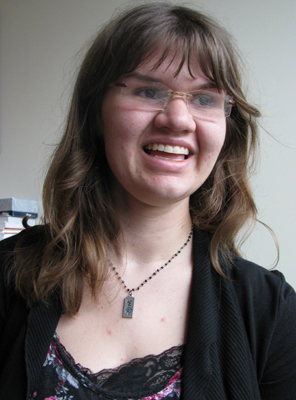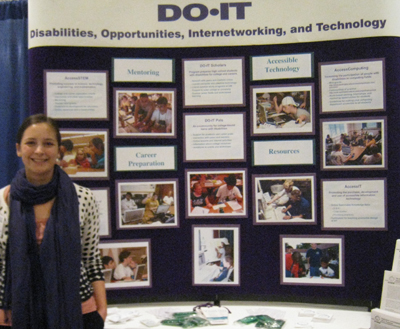Germ Forensics
During Summer Study, five Phase I Scholars—Krysta, Nicco, Niki, Shawn, and Eric—spent their mornings learning about global health. This workshop was sponsored by Seattle BioMed, a non-profit dedicated to eradicating diseases in developing countries. The diseases Seattle BioMed focuses on are malaria, tuberculosis, and HIV/AIDS. The students learned how infectious diseases are spread and what is being done to treat and cure them.
We began the week by collecting bacteria samples that we then streaked in petri dishes to be looked at later in the week. We learned how bacteria and viruses attack our immune systems. When we are sick, it's not the virus making us sick but rather, our bodies reacting to the virus. Things like fevers and coughing are all things our bodies do to help kill the foreign cells.
On Wednesday, we took a trip to the Seattle BioMed lab where we used compound microscopes to look at bacteria cultures we collected earlier in the week, dissected mosquitoes, and toured the lab. Our tour guide explained to us the progress Seattle BioMed is making in developing a malaria vaccine. They have a vaccine already in clinical trials!
In addition to all of these things, we learned about how epidemiologists track diseases' origins, how to use micropipettes, and how to conduct ELIAS tests to look for HIV antibodies. We learned a lot about science and how we can make a difference in global health.
We would like to thank our teachers, Beth Solan and Magali Sanchez, and Seattle BioMed for giving us this amazing experience!
